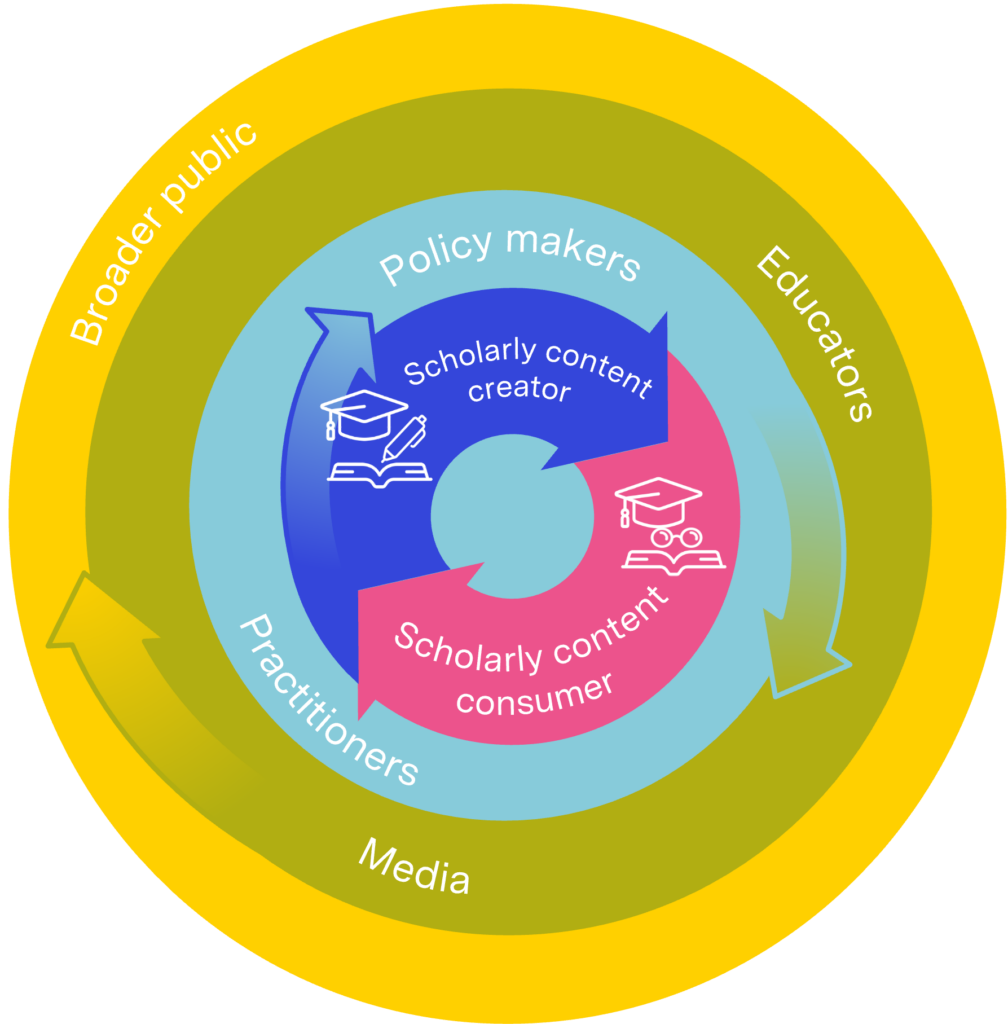 Both researchers and institutions are under pressure to grow their research profile. With so many new publications in every field, every year, it's increasingly difficult to ensure that work is finding its audience, and being read, applied or cited. Kudos was set up to provide researchers with a simple, standard, cross-publisher toolkit to help them maximise the discoverability and impact of their research.
Both researchers and institutions are under pressure to grow their research profile. With so many new publications in every field, every year, it's increasingly difficult to ensure that work is finding its audience, and being read, applied or cited. Kudos was set up to provide researchers with a simple, standard, cross-publisher toolkit to help them maximise the discoverability and impact of their research.
And now institutions too can benefit from Kudos' intelligence and tools. Here are 4 ways in which Kudos for Institutions can help you:
1. A single, central place to surface and support your researchers' communications.
You know your researchers do some outreach around their work. But do you know who is active, where they are sharing, or how they are talking about their work? How can you support researchers in building impact if your efforts and theirs are in separate silos? Kudos helps you by centralizing researchers' outreach, providing visibility into how they communicate whichever medium or channel they choose. This makes it easy for institutional staff - in the research office, communications team, the library or elsewhere - to amplify, support and learn from researchers' efforts, and thereby strengthen research support and impact.
2. The only system to show how communications efforts drive publication performance.
Social media is deceptive. With its ready availability of attention metrics (such as likes and shares) it seems easy to measure the effect of your communications efforts. But, in academia, very few people are specifically seeking likes and shares - most researchers and institutions want to know that work is being downloaded, read and cited. How can you connect the two datasets to learn which communications are really driving results? And given that a huge amount of communication between researchers happens by email, how can those efforts be evaluated, in terms of whether they are more or less effective at increasing readership and impact? Kudos is uniquely able to solve these problems. Researchers use our system to generate trackable URLs which make sharing trackable whether it is via social media, email, elsewhere online, or even offline in things like conference slides or handouts. We then work with publishers and metrics providers to gather a basket of metrics against which the tracked actions can be mapped. There are two advantages to this:
- Firstly, it helps researchers and institutions to understand which activities and media are most effective, which means future efforts can be optimized and time saved (a recent study of Kudos had some surprising results in this respect).
- Secondly, by showing that such communications do drive meaningful results (the same study showed that using Kudos correlates to 23% higher downloads, for example), it can provide researchers with the necessary evidence to justify time spent on publicity efforts, and thereby enable and encourage such efforts.
The more ways there are to communicate around research, the more useful a tool like Kudos becomes in helping researchers and institutions make informed choices.
3. Additional metadata to help increase discoverability.
As well as managing their communications via Kudos, researchers use our platform to add plain language explanations of their work. One advantage of this is that it aids in (linguistic) accessibility - making it quicker for other specialists to determine whether to read work in more depth, but also helping people outside the field to understand and potentially apply or build on the work. A second, important benefit of plain language metadata is that it helps broaden the discoverability of the work, by expanding the range of search terms that are likely to find it. Because the explanations added by researchers via Kudos are made available under CC-BY, and because we provide simple widgets to enable them to be imported into other websites, they can help to increase discoverability of content in institutional repositories or research information systems.
4. A nexus for collaboration between all research "stakeholders".
Any research project has multiple stakeholders, all of whom share a common goal of ensuring that the work achieves its potential (whatever that means in each case - whether readership, citations, policy influence, public engagement, etc). In the past, efforts towards this common goal have been fragmented with each stakeholder undertaking separate activities, often duplicating effort, and with no visibility of each others' actions or results making it as good as impossible to share learnings or benefit from each others' successes. Inefficiencies here are part of a wider picture of inefficiency in research communication, but are easier to address! By working with researchers directly, but also their institutions, publishers, funders and societies, Kudos provides a nexus for collaboration - a central system through which everyone can channel their efforts so each can see what others have done, learn from and build on that to improve results while also streamlining effort.
Watch our short video to learn more:
[youtube https://www.youtube.com/watch?v=jlht5GdhErM]
Want to know not just how your institution's research is performing but how that performance is driven? Kudos provides deep, actionable insight into the most effective ways to maximize publication impact. To learn more:
- Download information sheet (PDF)
- Download a case study of how one institution is benefiting from Kudos (PDF)
- Stop press! Kudos now has a Jisc agreement to simplify procurement for UK universities, and has introduced tiered pricing for all institutions globally
- Ask for a demo



